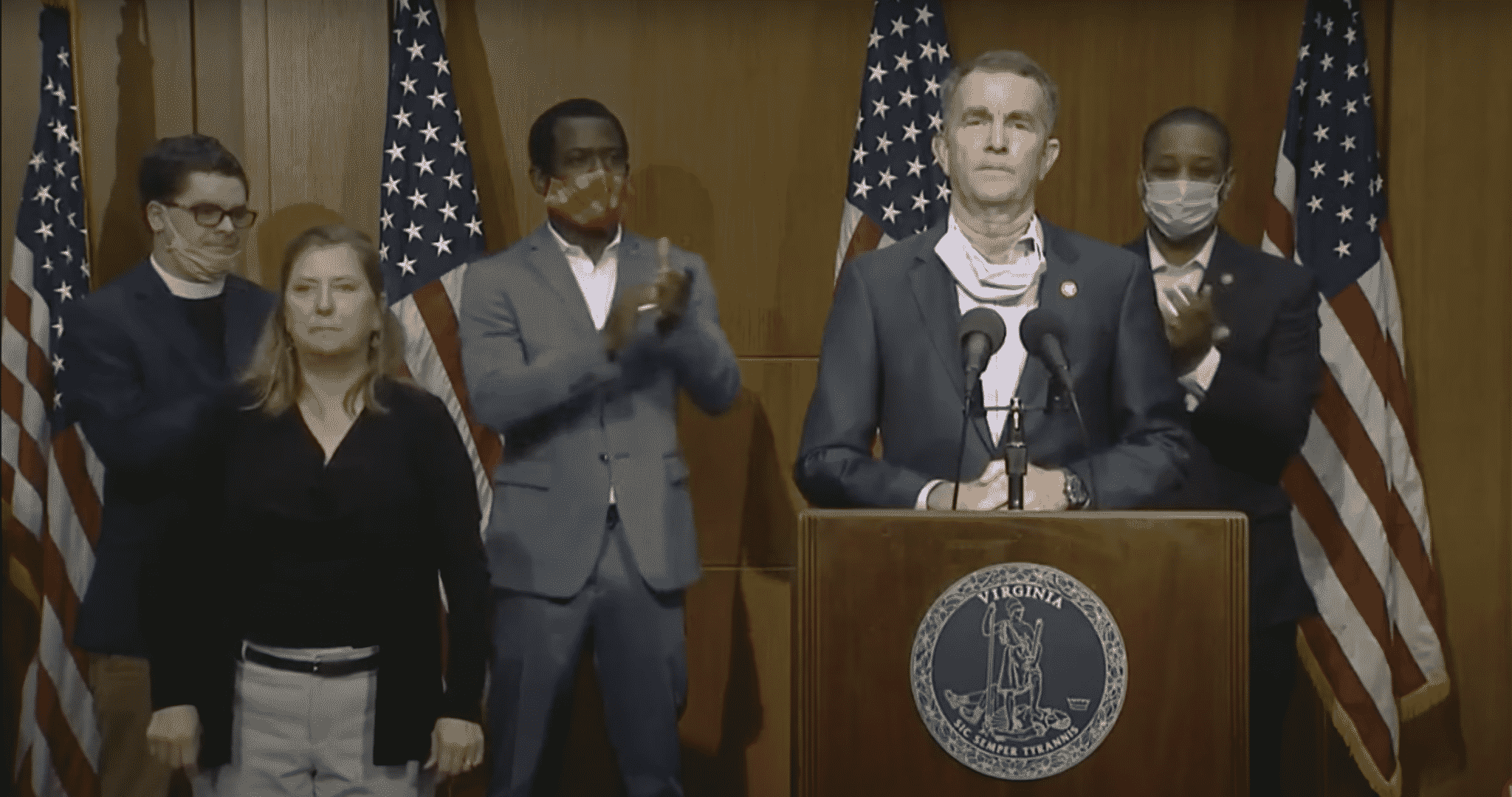Virginia Gov. Ralph Northam (D) is announcing that he has ordered the removal of a statue of Confederate General Robert E. Lee from Richmond’s Monument Avenue.
During a press conference on Thursday, Northam said, “It’s time to acknowledge the reality of institutional racism, even if you can’t see it. Public policies have kept this reality in place for a long time. That’s why we’ve been working so hard to reform criminal justice laws, expand health care access, make it easier to vote, and so much more.”
He continued, “But symbols matter too, and Virginia has never been willing to deal with symbols. Until now.”
“So, we’re taking it down,” Northam said, adding, “I know some will protest. Some will say, Lee was an honorable man. I know many people will be angry.”
Watch the video below:
Northam continued to discuss the history to the statues of Confederate heroes that were put up after the Civil War.
Speaking about the decision to build the statue of Lee in 1890, Northam said of Virginia’s leaders, “Instead of choosing to heal the wounds of the American Civil War, they chose to keep them on display. They launched a new campaign to undo the results of the Civil War by other means.”
He noted a new law, set to go into effect in four weeks, that allows localities to decide whether or not to take down other Confederate monuments. Northam said he was ordering the removal of Lee’s statue now because “it’s different from every other statue in Virginia — both in size and in legal status.”
He explained, “You see, the state owns it, unlike most other statues. That was another part of the plan to keep it up forever. It sits on a 100-foot circle of land, a state-owned island, surrounded by the City of Richmond.”
He continued:
“In Virginia, we no longer preach a false version of history. One that pretends the Civil War was about ‘state rights’ and not the evils of slavery. No one believes that any longer. And in 2020, we can no longer honor a system that was based on the buying and selling of enslaved people.”
He added, “But my friends, I believe in a Virginia that studies its past in an honest way. I believe that when we learn more, we can do more. And I believe that when we learn more—when we take that honest look at our past—we must do more than just talk about the future.”
“It will go into storage, and we will work with the community to determine its future,” he said.
























